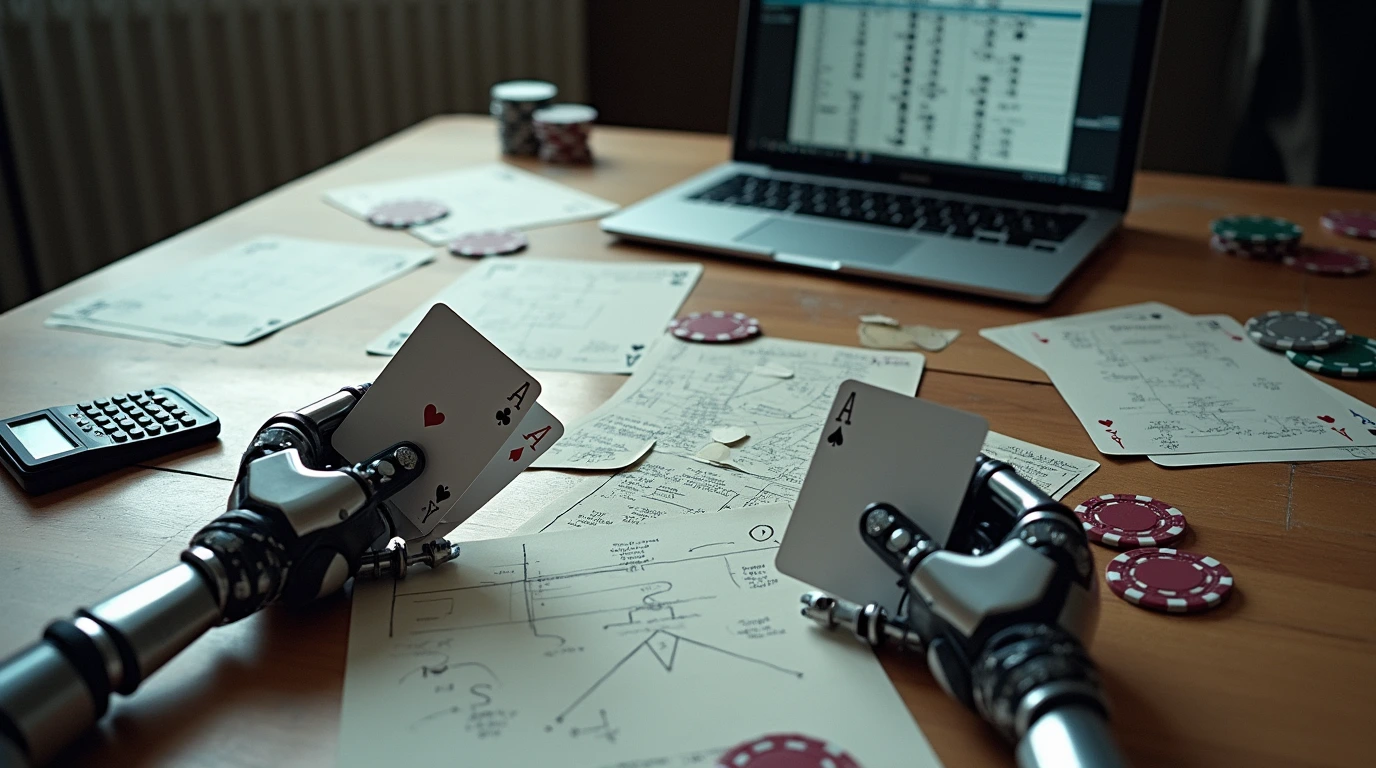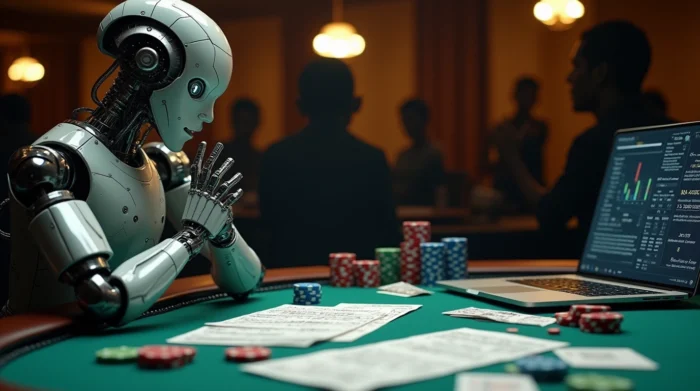You see, I have spent years buried in poker AI research, fiddling around with algorithms and developing strategies that, on paper, should crush opponents. You really would think the more detail you provide an AI, the better it gets. Firsthand, I learned that doing so sometimes makes a poker bot worse at the game. That does sound ridiculous, doesn’t it? But let me explain.
The magic word in AI poker development is abstraction. In other words, it’s just a nice way of saying we dumb down the game for the AI so that it does not get overwhelmed with the possibilities. Imagine trying to think over all combinations of cards or all possible strategies for betting within this game. That could take years! So we summarize similar situations into bundles and hope our bot plays them in the same way. For years, I thought-as many people still do-that finer and finer grainedness in these abstractions was the path to stronger poker AI. The more information, the better the decisions; well, that’s what we thought.

At times, it was actually interesting, because very frequently, in refining this abstraction, I found my bots falling into traps. J: Imagine giving your bot a new set of shiny rules and then watching it get played by simpler strategies. It’s almost like, in trying to dissect every little micro detail, it loses sight of the big broad perspective. I have seen this happen with my own poker AI tools, and I started thinking: Maybe we’re just overengineering our poker bots?
I conducted some experiments with a much simpler game called Leduc Hold’em. It’s like poker, but the fat sucked out—ideal for testing AI strategies without getting bogged down in a swamp of complexity. It was a kind of test, to see the way my AI would handle various levels of abstraction. Well, it went just like I had guessed: when the bot had less information, he used to make simple decisions. But with more details, the strategy just didn’t improve. Sometimes the bot was simply. confused. He began to overreact to minor changes in the game, making himself weak. The best poker-playing AI I could make was not really the one that had the most refined strategy. Sometimes it would just be fixated on, you know, the most insignificant piece on the board in some kind of grandmaster weirdness and totally miss obvious checkmate.
But the thing is, playing poker is about human intuition and psychology, and at higher levels, it’s a bit of a game that involves having lots of bluffs or unpredictability. That’s weird, because my poker AI algorithms can do probabilities in their sleep, but they sometimes miss this subtle art of misdirection that defines poker. The more we refine abstractions, the more detail we actually get, thus giving the bot a kind of “tunnel vision” into focusing on minutiae rather than the overall game.

I call this the “Monotonicity Myth.” In AI poker, there is a conventional wisdom that the more complex the abstraction, the stronger the strategy is.
Makes sense on the surface—more information, more power. But my research shows this isn’t a guarantee. In fact, some of the best poker bots I’ve worked with use simpler abstractions. They play a kind of ‘big picture’ poker, focusing on broad strokes rather than tiny details. When the AI sticks to a general understanding, it leaves less room for exploitation by cunning players.
Of course, one asks himself, ‘Why would I not program the AI to cheat? Use poker hacks or even the so-called “praponow hack”?’ Well, believe me, that crossed my mind. I mean, who hasn’t? But that is not the development of AI poker. The beauty and challenge is in developing a bot to play according to rules and to outsmart opponents just by strategy and calculated risk. Getting a poker bot from the Internet with all the cheats in it will likely win you a few hands but never teach you the elegance of the game-the beauty of a well-timed bluff. I remember thinking that the answer was to just abstract it down more. I added in the detail, put more and more actions into the bot’s decision process, and. it got worse. The bot began overplaying some hands, falling into traps that even average players could set. Then finally it was clear to me: take refinement too far and you can make a bot lose whatever good sense it did initially possess, much as a person at the poker table who thinks about every move way too much. Where does that leave us? In the work of building AI poker, it may be we should adjust our focus. What we may be needing is to install some sort of poker ‘intuition’ in our bots, not an infinite refinement of abstractions. After all, poker is at least as much a psychological struggle as a mathematical one. Today, my poker bots embrace simplicity where it truly matters. I use enough detail to make solid decisions without drowning in noise. And you know what? That seems to work like a charm. Most probably not perfect but at least can hold their own at the table. They remind me that sometimes in poker—just like in life—less really is more.
